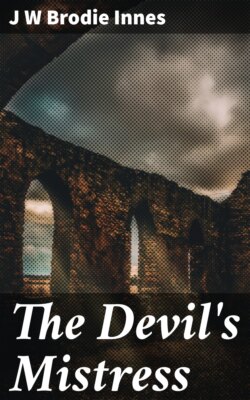Читать книгу The Devil's Mistress - J W Brodie Innes - Страница 3
На сайте Литреса книга снята с продажи.
Оглавление"
Author's Note
Table of Contents
IF the story which follows were to be regarded as a work of imagination, it might justly be characterised as too wildly fanciful to deserve even serious consideration. But it is not this: it is an attempt to portray exactly one of the most curious phases of belief or superstition that ever passed over this country, the witchcraft, namely, of the latter part of the seventeenth century. Isabel Goudie was a real person, and her own story of her life in full detail, given voluntarily and under no coercion, is preserved in the archives of the Justiciary Court in Edinburgh. Other contemporary records confirm her account. For example, the illness of Harry Forbes, the minister of Aulderne, is recorded in the Presbytery minutes. The Diary of Lord Brodie is well known. The old house of Gordonstown still stands, almost as described in the tale, and in the muniment room are many letters of the Wizard Laird, the remains of whose alchemic furnaces and apparatus are yet to be seen in one of the so-called dungeons, and whose portrait hangs in the drawing-room. The tale of his ride for life with the Devil is still current in Morayshire. Many of the letters of Patrick Innes are in the Seafield Correspondence: others are in my own possession. All the leading characters in the story are actual historic persons, and the incidents told of them vouched by contemporary writings. I have merely set down as truthfully as I could what the actors undoubtedly believed to be unquestionable facts, and must leave it to the reader to decide whether a monstrous delusion swept over the whole country, or whether a strange manifestation of supernatural powers, either evil or good, took place some three centuries ago. In either case, it is an interesting study in the history of human thought.
The recovery of many of the incidents in the tale, and their subsequent confirmation by documents, and much concerning the writing of the book itself, would form exceedingly interesting matter for the Society for Psychical Research; but of this I say nothing at present, preferring that the book should rest merely on its own merits as a record, as nearly accurate as I can snake it, of an interesting, important, and little-known period.
